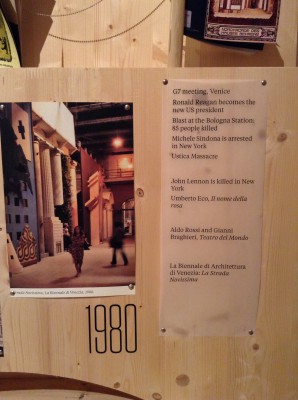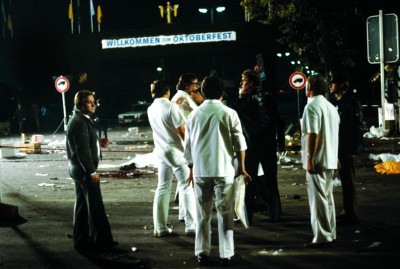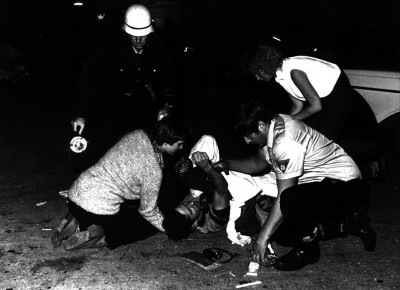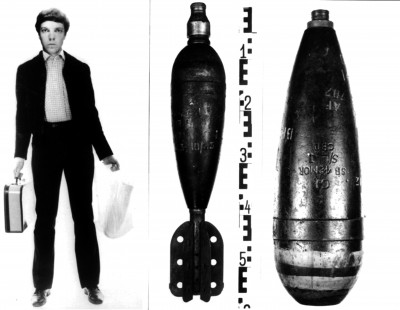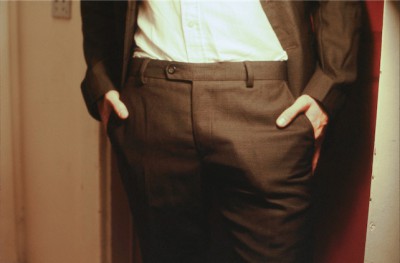
It’s a way of seeing. I recall what you said about the American Apparel Ad, the staging of men in position usually occupied by women, its seeming unworkability – which arises from the strangeness of seeing men occupy a position that is not theirs, so to speak. This and in a way what you say of Gambia is a reason I detest a certain kind of “feminist,” whose notion of liberation means women positioning men in ways long occupied by women.
That is to say, the legitimization (by women) of women as bitches. In response to the deliberate invisibility of the female gaze, yes, I do think that male and female erotic responses to visual stimuli are culturally conditioned. What you say about your mother and her friends reminds me of a story my mother told me some time ago: The first time she set eyes on my father’s village champion wrestler. (My mother is from the coast, so the concept of half-naked men engaged in wrestling was alien to her.) She was twenty and newly-married. What a sight he cut: His loin-cloth barely covering his heavy buttocks, and the women of the village chanting praises a safe distance behind.
So, yes, I think Kinsey’s female non-erotic response to visual stimuli is not biological. I want to pursue Gambia a bit further. To challenge my preconception, if I accept prostitution as an act of violence a woman commits against herself for material gain, am I merely reconfirming a mindset? Do I see male prostitutes in this light? Is male prostitution also an irreparable damage, an irreversible destruction of a human body? Are male and female commercial sex the same thing? I think it’s safe to say that with both male and female prostitution, men and women are both mauled by the reduction of sexuality and sexual fulfillment to having as many orgasms as often as possible.
Part of the thrill of commercial sex, at least for men who use the services of female prostitutes, is the power play. Is there, I wonder, a transfer of power to these women who go to Gambia during the sexual encounter? This takes me back to Milbrath’s photos and how men and women are sexually positioned: Is it about what could be done to this male body, or what this body could do to them – for these pleasure-seeking European women? In what way does the fact that, historically, men have held a sexual dominance affect our perception of male prostitutes? Is not our general perception of men in society one of power, domination?
Do we ever look at these Gambian males as being exploited by the European women – because of their material circumstances – the same way we’d look if they were female? I find it really interesting, your experience in Gambia, your use of market terminology. In a market driven society, form is usually passed off as content. Since naked cash is the sole nexus between individuals, what common ground could exist between men and women except as buyers and sellers? Again, on the legitimization by women of themselves as bitches. Does the availability of commercial male bodies – in strip clubs and the Gambia – signify the arrival of equality, liberation?
I can understand why the male strip club did not work for you, the same way commercial male sex did not. Neither signified liberation, but rather a buying into ugly reality. They do not in any way challenge our reality. I do wonder, however, to reference the Völkerschauen, if a modified version of it is enacted on the beaches of Gambia and Mombassa. It seems to me, these sex tourists who come to the Gambia are more comfortable with black males they can lead around with an invisible leash and make to perform. (I find what you say about the Völkerschauen really interesting.) It is possible to agree with Freud – in reference to your comments about the cliche of the female need to shroud herself with darkness, her need to hide her desire – that every sexual act is “a process in which four persons are involved.”
One can extend this to also include the preconceptions about ourselves and each other both sexes bring to the act. The one responds to the other – during the act – not truthfully, but according to his/her own externally-imposed preconception. Identity is constructed from birth. It is safe to say that, distance tend to develop between women and their body. This distance is culturally constructed. In a way, I think this is expressed by the myth of Immaculate Conception: the construction of female sexuality in reproductive terms – to exclude the vagina and clitoris.
A woman, what is she? A womb, an ovary. As an aside, I’m thinking of Jamie McCartney’s The Great Wall of Vagina. To what extent does it speak to female shame to never go down there?
It is possible that to the traditionalist-minded, McCartney’s images (so unlike the astonishing leveling out of uniqueness in porn’s designer vaginas), from the most intimate world of women, which had always remained hidden from the eyes of women themselves is an excursion to the dark side of art. A person can either submit to this imposed identity, or seek to reconstruct herself on her own terms, to resist all attacks against her sense of self. (It must be said, however, that easy access to male flesh – on ‘female terms’ – and the staging of the male body does not in anyway constitute resistance to attacks against self.)
With Milbrath, there’s no attempt to go beyond the surface, to look beyond stereotype. There’s, in this gaze, no questioning. My reality of being male is not validated by mainstream imaginings of men. I’d managed to hang on to my own sense of self all through the crisis of adolescence and the pressures to conform. It is for this reason I make my male protagonists deliberately feminine. (The most powerful men are men who are not afraid to be feminine. Machismo is cover for insecurity.) I’d translated my discontent into new images with which I seek to undermine conventional perceptions of black male sexuality. For me, it’s not just the sex. I particularly like the shared silence, the talking, and the taking breaks, the nonsexual caresses.
I like that it is not just the sex. The commodification of love expresses itself in the fetishization of sex, that is, sex stripped of its human quality, stripped of tenderness. To accept this is to accommodate oneself to a life without beauty.

